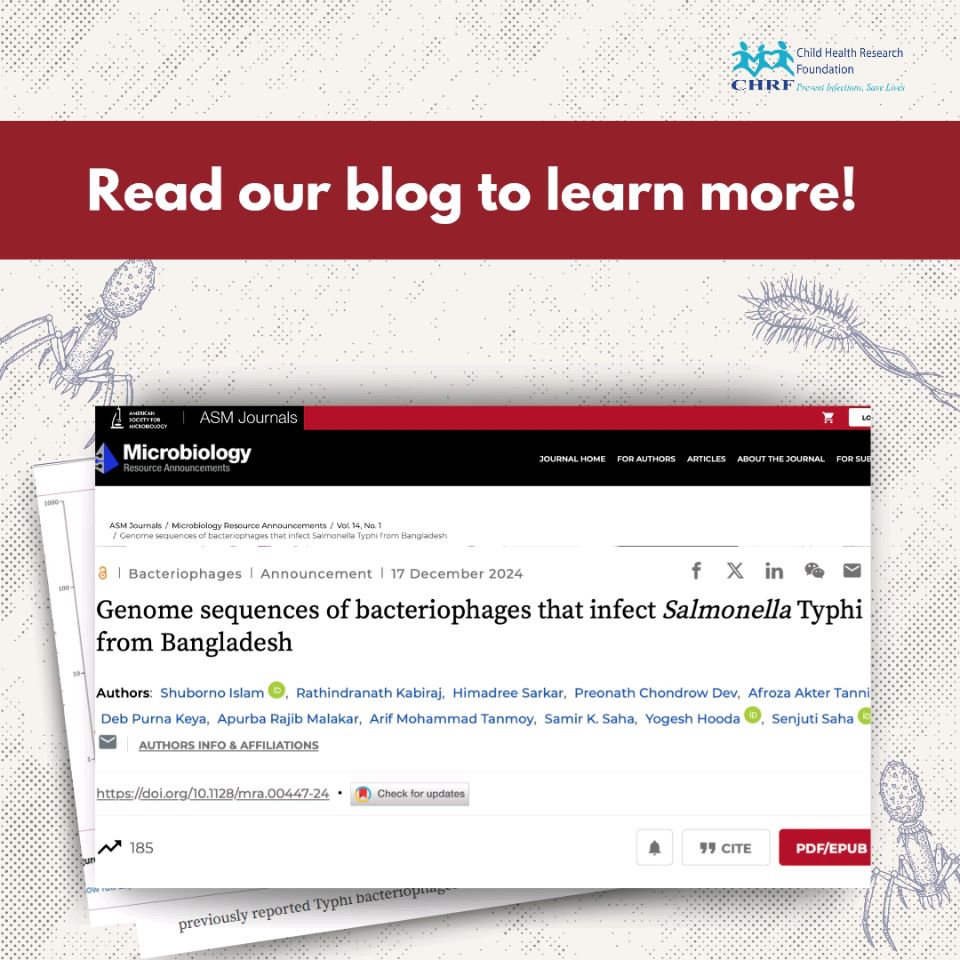
Genomic Insights into Salmonella Typhi Bacteriophages: A Breakthrough Study from Bangladesh
Researchers at the Child Health Research Foundation (CHRF) have made a significant breakthrough in Bangladesh by decoding the genomes of 14 bacteriophages—viruses that specifically target Salmonella Typhi, the bacterium responsible for typhoid fever. Published in ASM journals, these discoveries, based on environmental surveillance conducted across Bangladesh from August 2021 to June 2022, hold great promise for public health in the region.
How CHRF Researchers Conducted the Study
The CHRF team collected surface water samples from various locations across Bangladesh, isolating bacteriophages using Salmonella Typhi as a host, and employing cutting-edge techniques to analyze the genome sequences with state-of-the-art bioinformatic tools like Pharokka and Kraken2.
The work revealed that 10 of the sequenced phages belonged to the Kayfunavirus genus, while the rest were classified under Macdonaldcampvirus and Teseptimavirus. The genomes showed a remarkable depth of coverage and high similarity to phages from Nepal, the USA, Canada, and Germany.
Why This Matters
Bangladesh is heavily affected by typhoid fever, a major public health concern in low- and middle-income countries. The findings from CHRF expand the global database of Salmonella Typhi-specific bacteriophages, offering new insights into their genetic diversity and potential applications.
This research highlights the potential use of bacteriophages from the environment for improved surveillance and detection strategies. A deeper understanding of the interactions between bacteriophages and S. Typhi could inform public health interventions, like vaccination strategies, especially in the face of rising antibiotic resistance.
A Step Towards Health Equity
This study showcases the potential of local research to address global health challenges. By investing in genomic research and collaborating with global experts, CHRF is paving the way for breakthroughs that could transform typhoid treatment and improve health outcomes for millions in Bangladesh and beyond.
Funded by the Bill and Melinda Gates Foundation, this work exemplifies the role of science in tackling endemic diseases and supporting vulnerable communities worldwide.
To learn more, explore the insights further here: https://journals.asm.org/doi/10.1128/mra.00447-24
